Written by Fidgit
Connection both takes and creates energy. This is how an individual is able to keep on giving, when she has nothing left. Thus begets the irony: in becoming weary and guarded I have less energy to engage and with less engagement, I have even less energy.
As we have been pushing bigger distances and longer days, feeling less certain of our safety in the frequent cities, and generally becoming weary, our interactions with people have become limited. Still, the moments of connection shine.
These are a few.
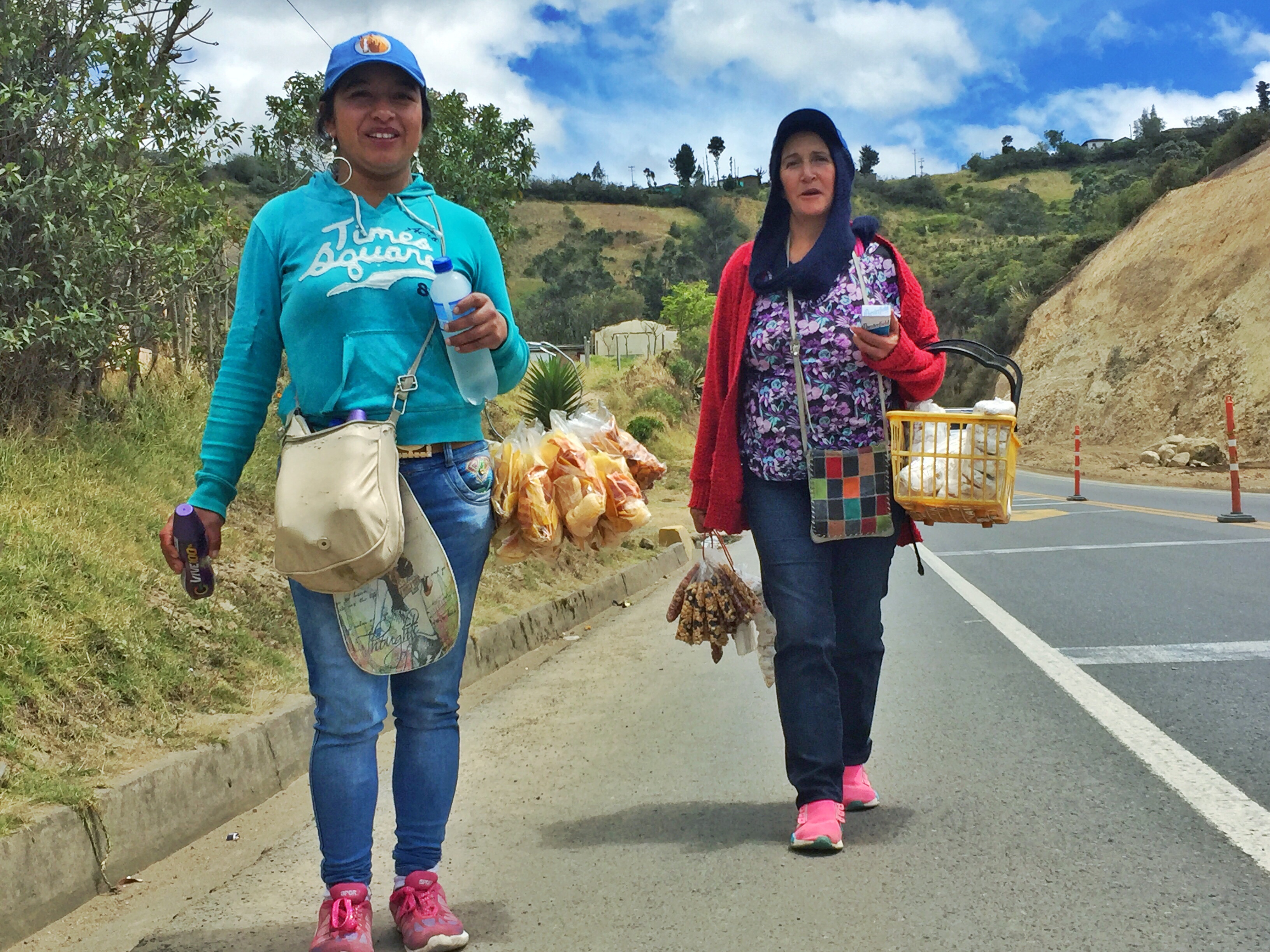
Morning Dance Party
It had been an early morning start. Not my favorite time of day. Leaving town, on a short downhill toward the river, dreading the long, exposed climb to follow, I heard a distant, tinny audio of Beyoncé ‘All the Single Ladies.’ It was piping out from the purse of a woman just ahead of us, standing facing away, waiting for a bus.
The song is cheesy, it’s universal, it’s a call to arms. I could tell from her stance, she was bored. Her glistening mane cascaded to wide pear hips. I have never seen women shaped quite the way some of these Colombian women, touched by the most striking features of each of the cultures which came together in this tropical region.
I began to hum along. She startled a bit, glancing over her shoulder. One corner of her perfectly lined and glossed lips twitched, this woman knew how to play coy. Another thing about Colombians is some of them seem to just be natural flirts. She batted long mascara eyelashes and the scent of her perfume wafted up the hill.
I felt ratty, filthy, frumpy. My clothes are sagging off my body, sweat stained, sun bleached, torn, and everything stinks. We couldn’t be more different but underneath that all we were the same, weren’t we? I am still human, I am still female. That music was mine just as it was hers, right?
“All the single ladies,” I blurted out. Wiggling my body and making my backpack, the uninvited dance partner, sway.
“All the single ladies.” She murmured and sashayed her hips a bit.
We called and repeated as I closed the distance between us.
“Put your hands up” we both threw our hands up and did the little dance and in that moment as I passed her and we grinned at one another, we were just two girls, dancing to a song they like.
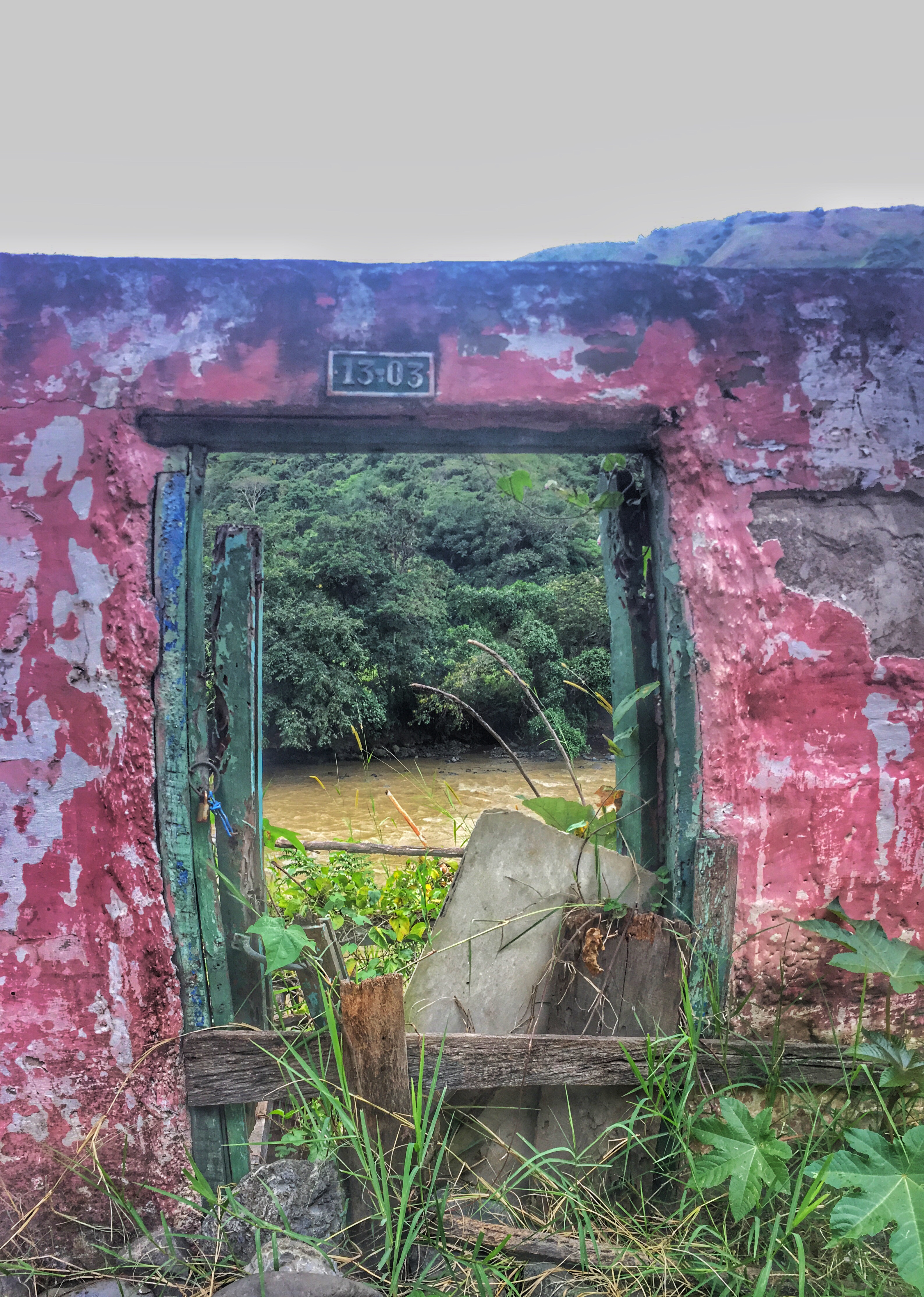
The Woman in the Road
It was a long, winding downhill. The road was narrow and the turns were sudden and sharp. I came around a bend and an old woman stood brazenly in the middle of the road. She held a shovel in her hand and stood next to a relatively small pothole. Her other hand waved a white baseball cap at passing vehicles.
We have come to identify this as a relatively common income strategy. Ever since Peru, a local will go stand with a shovel next to a pothole, implying that they have fixed it themselves and therefore the passing vehicles should give them money. Whether they have improved anything or not is entirely speculation. I have never seen any of them actually lift the shovel except three little boys in Peru who kept trying to push the runny mud of a slow moving landslide back uphill off the highway.
She just stood there, swinging her hat. Staring down semi-trucks and buses as they swerved around her. I waved as I passed and she turned a jovial smile my direction but did not leave her post. I had found a five hundred peso coin on the road (equal to about .16 cents).
Now, my policy on giving is to trust my gut. Not to give out of reaction, or a sense of debt and definitely not pity. I’m not perfect at discerning, but when the distinction stands out, it is clear. I had walked past and didn’t want to turn around and walk uphill. The value of the money wasn’t worth the effort and I would look dumb anyway. But after two steps the feeling was still there, so I turned around, hoofed it back up, and stood in the middle of the road with her.
Her eyes were ocean green, the thin material of her smock was sun faded teal. Her spirit was vivacious. It felt orange and warm. I grabbed half the coins out of my pocket and handed them to her. Already I was gaining more than money could ever justify. I rested my hand on her forearm. She held me by my elbow and we smiled into each other’s faces as we chatted, talking about her chickens and her grandkids. I wanted to collapse into her arms. Tell her about how my grandma died just a few months ago, how much I miss her. Feel a flicker of that brand of care and love which is so particular to a grandparent.
But I took a deep breath, dodged back to the side of the road, and mustered on. A few turns later, feeling my blood sugar dipping, I happened past one of the many small roadside huts selling orange juice. I asked the woman for 2 oranges, one for me and one for Neon. I’m not sure that she ever actually spoke. She just looked at me. Then at her pre-adolescent daughter. The daughter asked if we were walking. Where had we come from? I said the name of the last town. At the tilt of her mother’s head the girl got up and grabbed 5 oranges and handed them to me.
“Cuanto?” I asked, beginning to count out my remaining coins.
Mother and daughter both just shook their heads no. I dumbly held out the handful of change, all I had on my person. No, they indicated again. It stole the breath from my chest. There is no such thing as storing up or even maintaining a balance between giving and receiving, it is merely a matter of trusting its flow. Tears of gratitude threatened so I bowed my head, thanking them with both hands.
It was a shot of energy. Of compassion. I veritably skipped away, peeling my orange as I went. A fat little worm had laid claim to one of the slices so I tucked it away safely into the grass where hopefully it too could eat in peace. The hot sun baked the sweet juice to my chin as it dribbled from my mouth, overflowing like my heart.
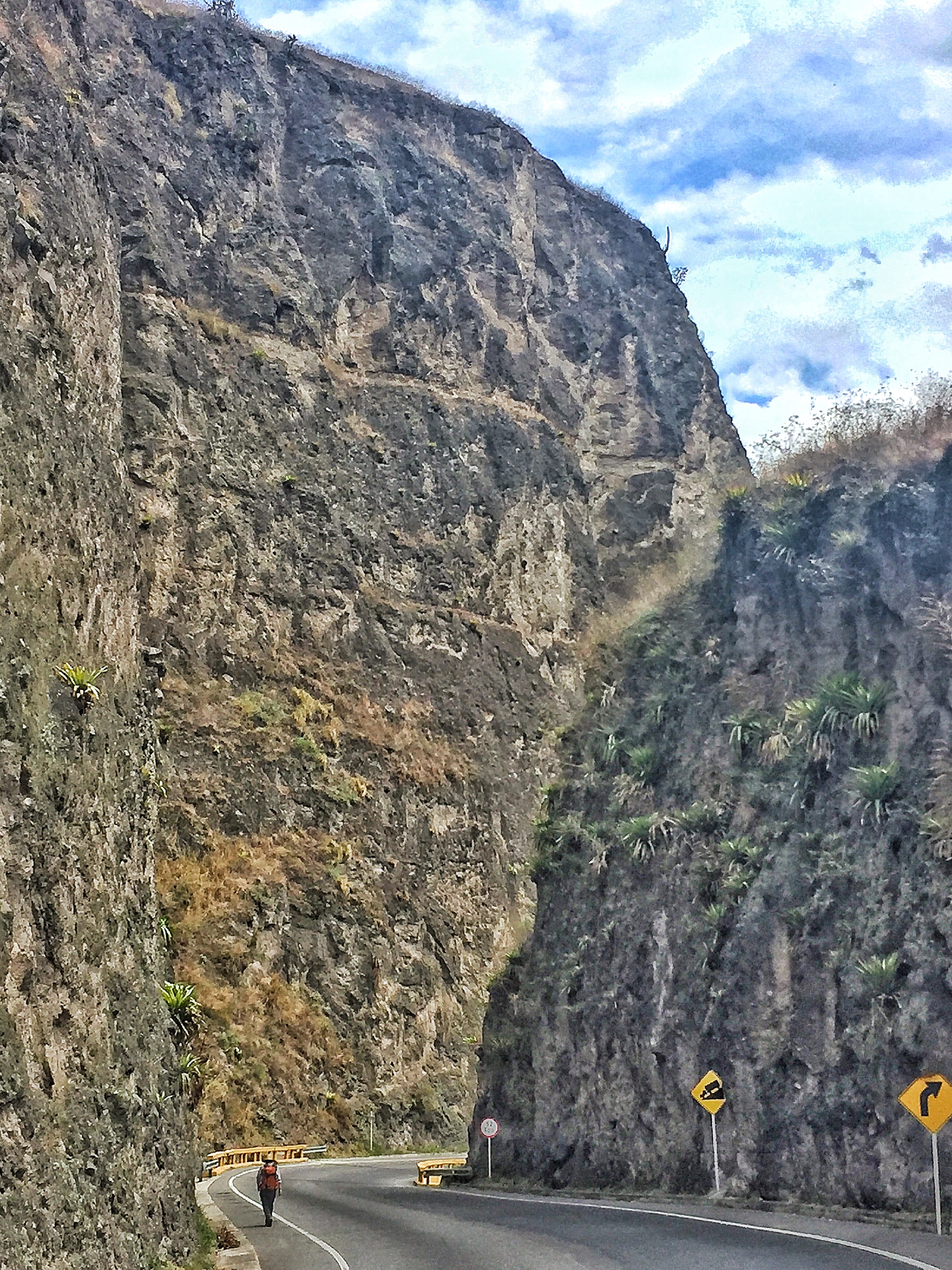
Band of Moto Pirates
It was our last day walking across Colombia. We had already skipped ahead to Turbo to meet our guide for the Darien, Isaac, but had to come back out to close the last 24 kilometer gap to complete our crossing of the continent. As we walked into the afternoon, a thunder could threatened. A woman puttered up on a moto along the shoulder behind us; she slowed to our pace, swinging her feet along and pushing off to maintain her balance. She wore the knee high, black, rubber boots ubiquitous to anyone who spends time in the fields.
A chubby, bored dog watched us from the foot well of the scooter. He glanced up at her and then let his paw drop and drag along on the ground. It seemed petulant.
She lifted his paw back onto the stand with the toe of her boot.
“He’s spoiled. My father recently got a car, now he hates having to ride the moto. He just wants to go everywhere in the car.”
He plunked his paw down again.
She and a group of her friends were heading back out to work. A small fleet of motos kept passing us, pausing to see if she was alright. “I’m fine. I’ll catch up later,” she told each of them. They sized us up and then moved on.
I imagined her a Caribbean pirate queen. Something in her tone, the way she spoke with the same practicality whether we were talking about her dog or murderers, the way she spoke of the sea, shrugged about working from 6 am to 5 pm in the banana groves every day. Dozens of tight black braids, tipped with a curtain of bright beads cascaded between powerful shoulder blades. She was strong, everything about her felt strong. The kind of strength that made me happy she had decided to favor us rather than harm us. That she wanted to speak, as women, of travel.
She had traveled. She had once lived in Puerto Montt, Chile. We talked about the open market where she had worked and I had visited as we walked through. Earning was much better there in Chile, she said. We talked about the lobos del mar (sea lions) who hung out on the beach behind the market, delighting tourists and enjoying scraps. We talked about the volcanoes.
She answered my questions about Colombia. What did she think of Venezuelans? Why were the banana clusters on the corms wrapped in blue bags? We talked about the paramilitares. She said they would rob us. I began to explain the English saying, “you can’t squeeze blood from a turnip,” but I didn’t know the word for turnip so I improvised “carrot.”
As I went to explain the meaning I said, “It means, if they try to rob us, I don’t have any money so . . . ”
she finished the sentence, ” . . . they just kill you.”
Not exactly where I was going with it, but more importantly, it was something I had perhaps not acknowledged. Every time I let my privilege hang loose, it comes flying back to whap me in the face.
“Okay, I have to hurry,” she gestured with her chin at the wall of rain heading our way. Two more times that day we saw her whiz past with the moto fleet flanking her. Every time she nodded with her chin. Every time I felt as if a powerful agent was casting a protection. The Moto Pirate Queen was watching out for us.
Even a thorough drenching could not wash the sense away.
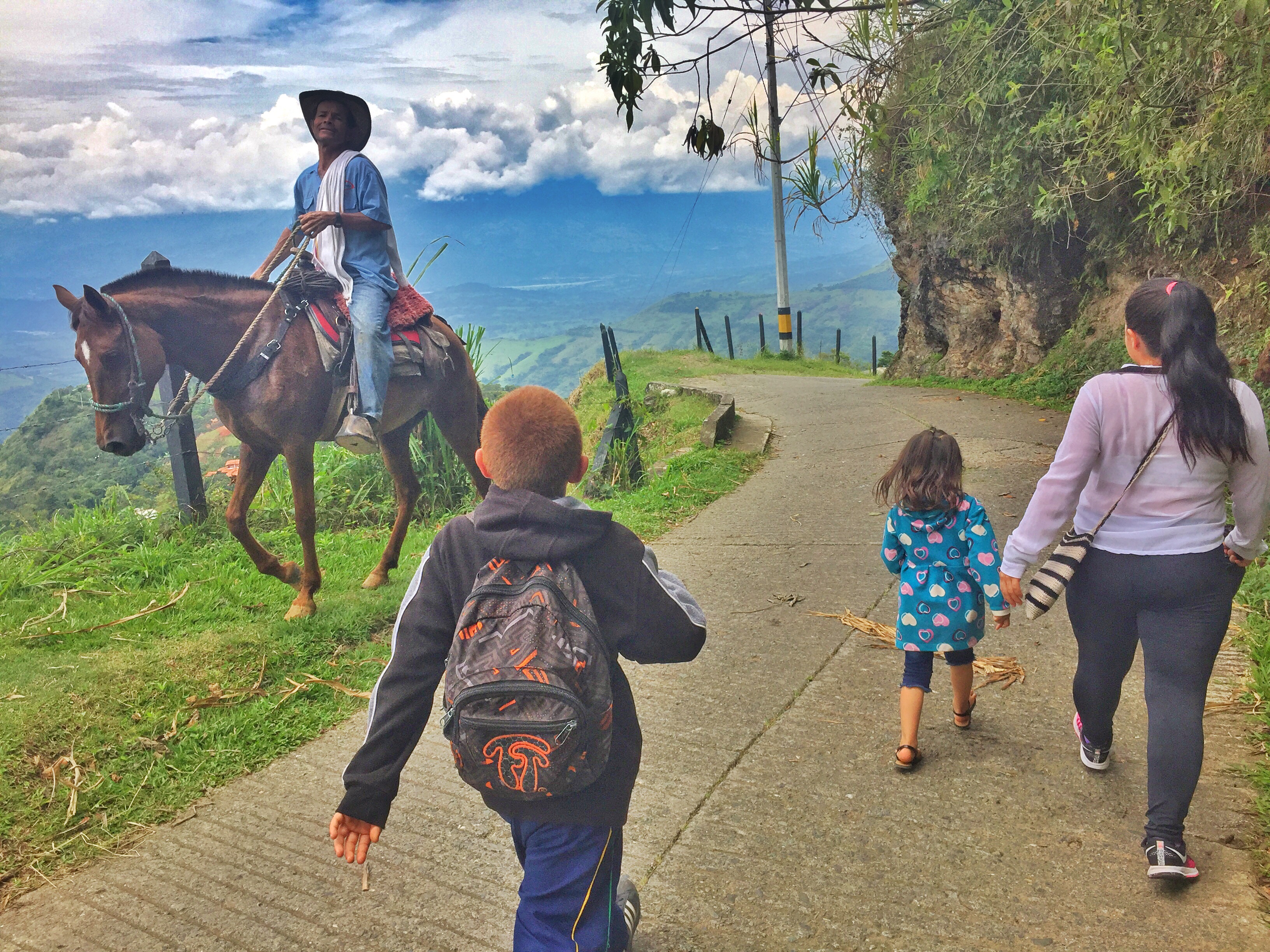
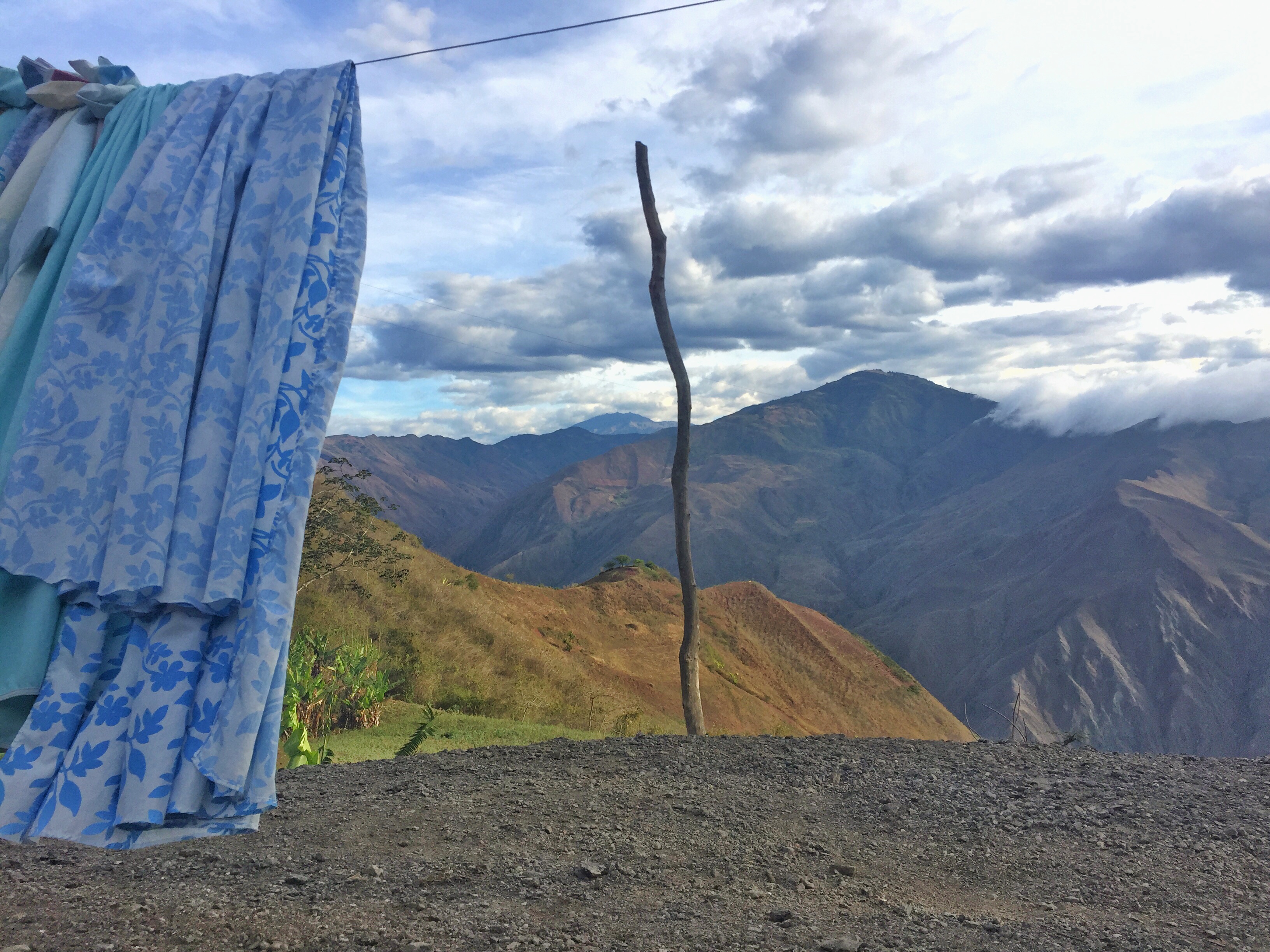
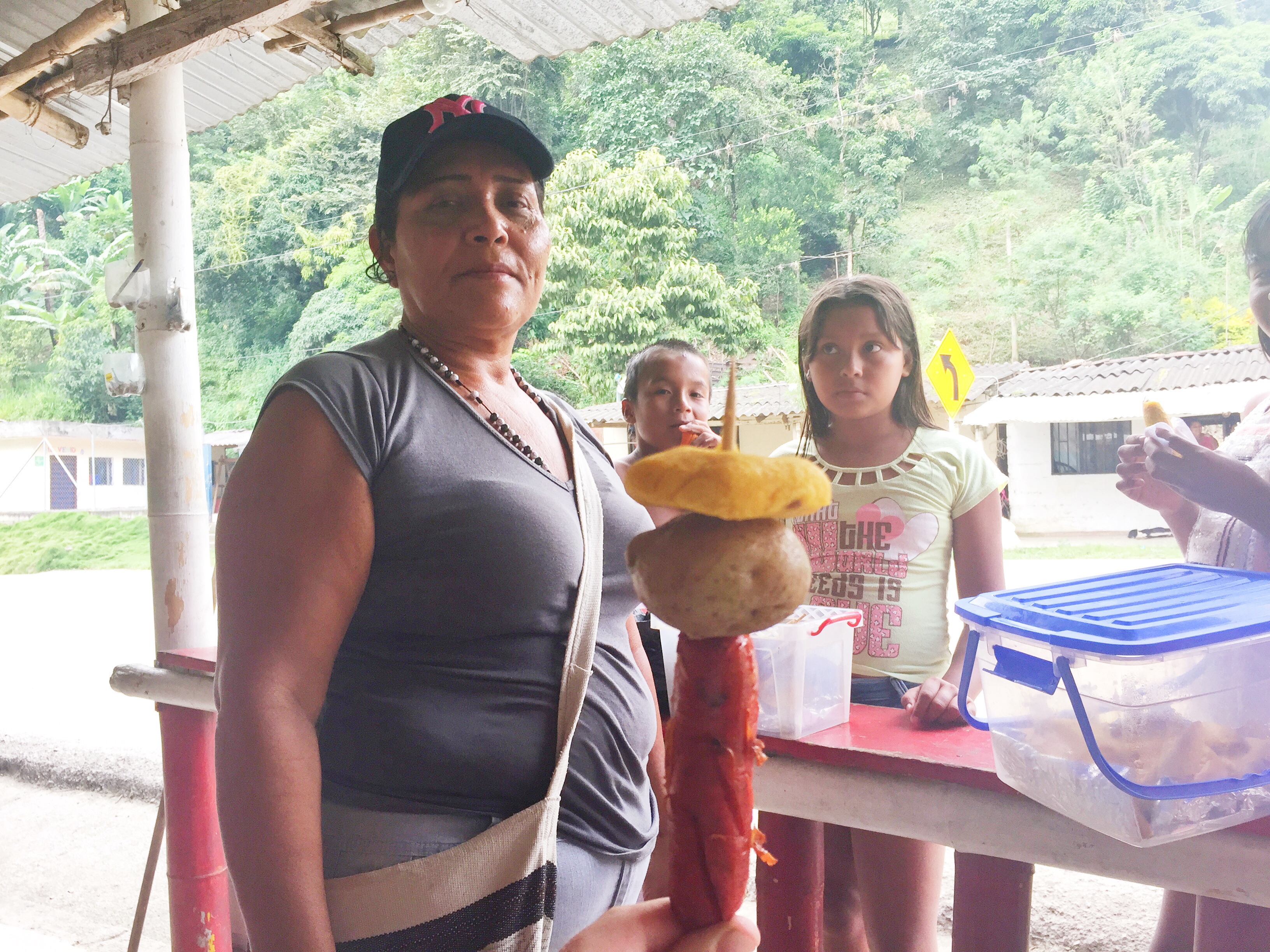
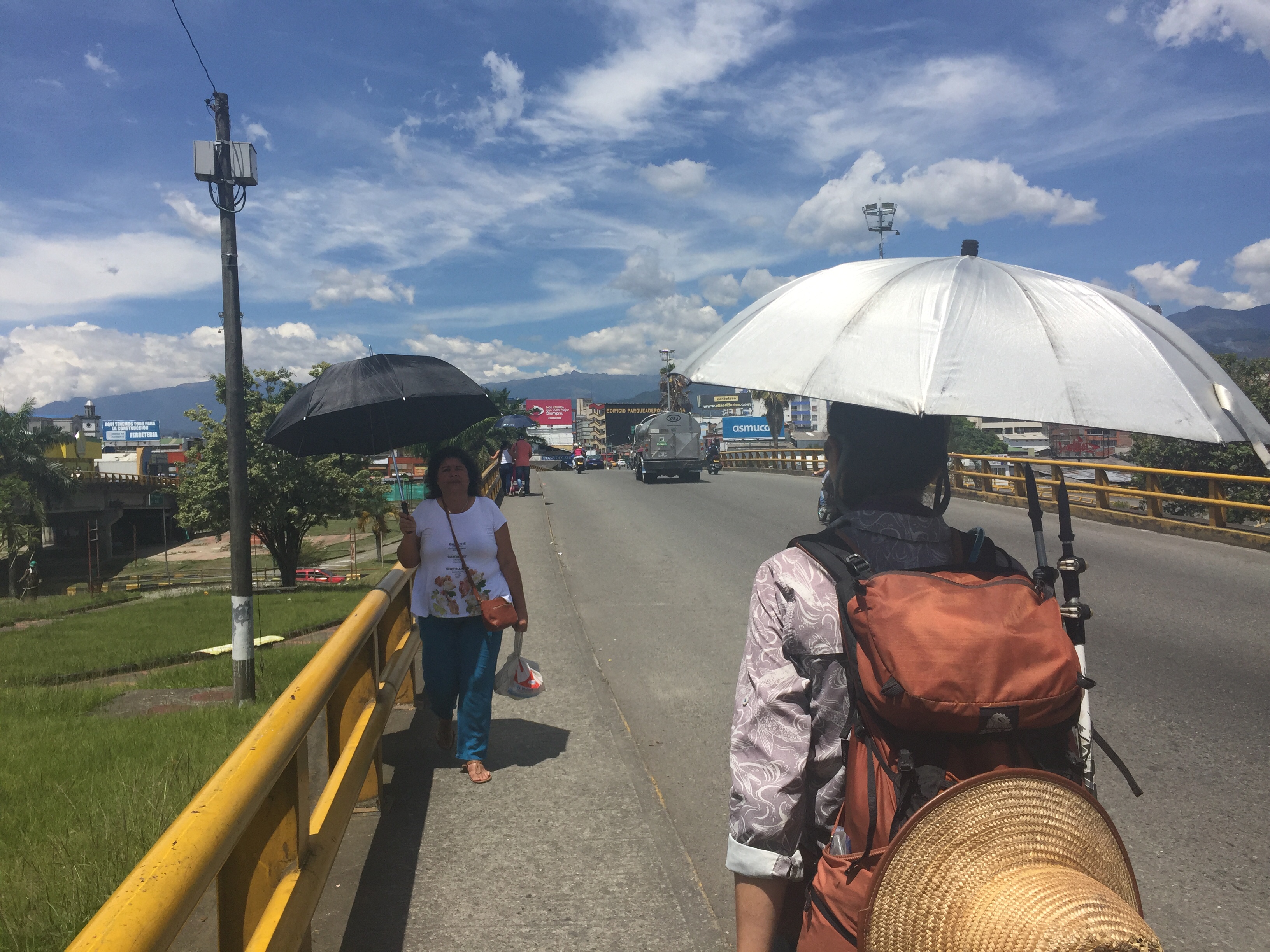
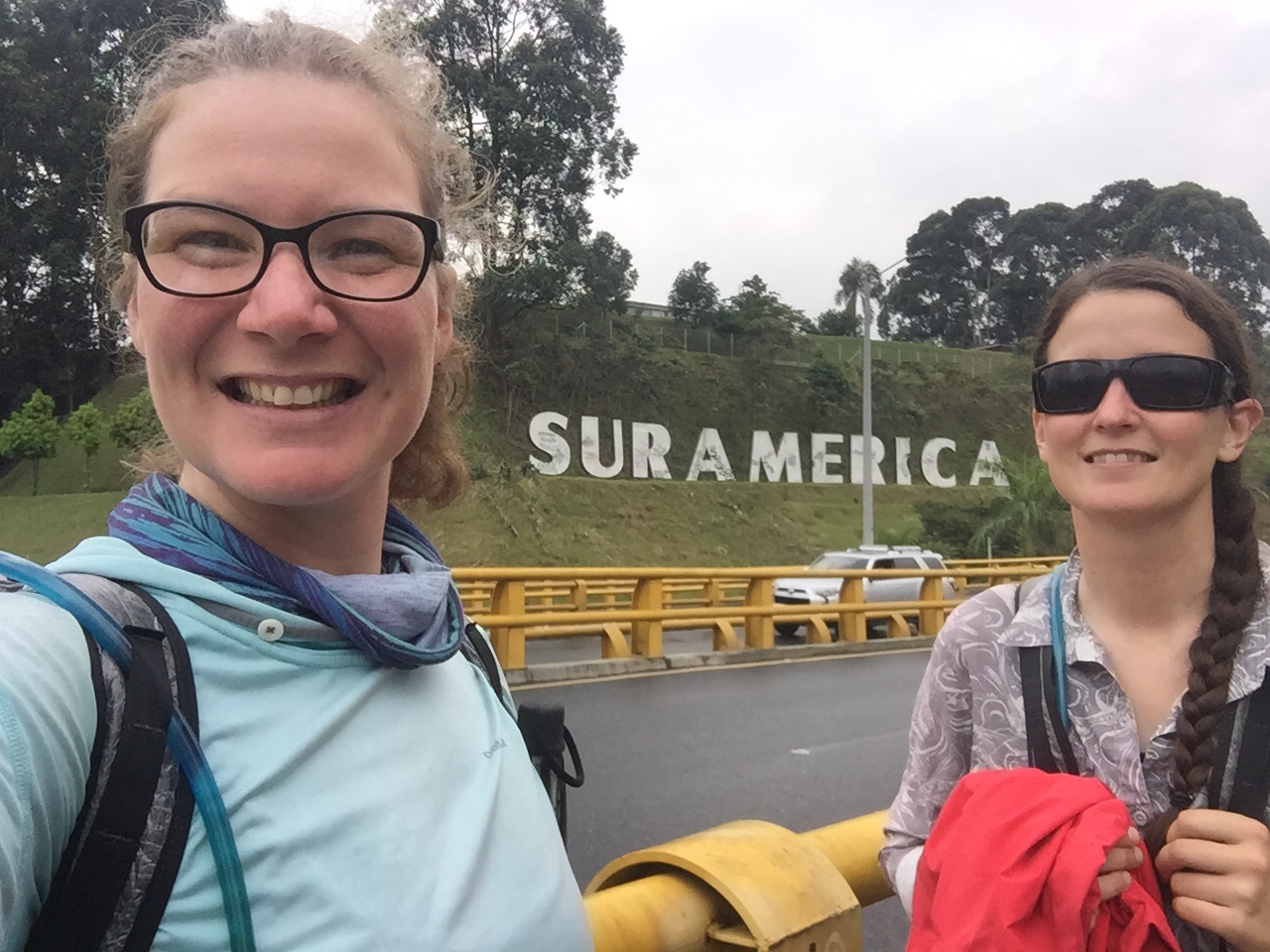
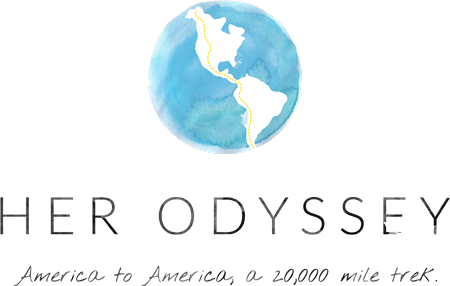





Comments (4)
Oh, what a deft and finely-attuned story-weaver you are! Thank you for bringing together so many richly-colored threads in one telling.
Thanks for sharing your journey with us with honesty and wisdom.
Cliff and Martha Rawley
What an amazing journey! I love your photos and stories. -Rebecca
Such an encouraging note! Thank you.